Is there a book in you?
In this special edition of the Rare Faith podcast, John Robinson interviews me about my experience as an award-winning, three-time best selling author. Listen in to find out how you can get YOUR book outlined, completed, and successfully marketed. Get specific tips for overcoming obstacles and achieving your book-publishing goals.
Host John Robinson is an award-winning author and international speaker. He has spent over 30 years living his passion and built a successful business around it (birdwatching!). He has tips to share on how to use a book to establish yourself as an expert in your field, and unlock hidden income sources already existing within your business.
(And by the way… if you want to find out how I earned over a million dollars giving my book away for FREE – true story! – check out my complete “Profitable Author” training at www.ProfitableAuthor.com)
TRANSCRIPT:
ANNOUNCER: Welcome to a special edition of the Rare Faith Podcast. As always, show notes for each episode can be found at ARareKindofFaith.com. If there’s a book in you, keep listening; business coach and award-winning, best-selling author, John Robinson teams up with award-winning, three-time best-selling author Leslie Householder, to discuss, not only how to get your book done, but how you, too, can become a best-selling author.
JOHN: Today, I’ve brought on-board a wonderful guest who’s going to teach us how to write a book and make it a best-seller, and her name is Leslie Householder. Before we bring her on, I just wanted to tell you a few things about her. I actually met her a few years ago, and have been watching everything that she’s doing, and – phenomenal results. Leslie is the award-winning, best-selling author of The Jackrabbit Factor: Why You Can, and she’s also written Hidden Treasures: Heaven’s Astonishing Help with Your Money Matters. She’s a wife, and mother of seven, and, as a result, she knows what it means to be busy. And yet, she still manages to be president of her company, Thoughts Alive, LLC, “dedicated to helping families achieve prosperity, even against all odds.” She has done self-publishing as well as traditional publishing; she’s been featured in multiple Chicken Soup for the Soul books; and has negotiated rights for several different languages. So, Leslie, I’d like to bring you on the call; welcome.
LESLIE: Thank you, John. Good to be here.
JOHN: What we’re going to do is, we’re just going to get down to some brass tacks. I know that, when we get ready to write a book, a lot of things are going through our mind; this might have been something we’ve been thinking about for months, perhaps even years, and now we’ve gotten to a point where we’re actually committing ourselves to write the book. And, a lot of times, especially for first-time authors, and even for experienced authors who’ve never really thought about this, I think that you can certainly write a book with all the things around you disturbing you, and, kind of taking away your attention and concentration, but one of the things that I coach all of my clients on is to get your foundation set, and make sure that your environment is absolutely right and conducive to writing that book. So, I’d like to first ask, before we really get into how to make the book the best-seller, let’s go ahead and focus on how to get the book written, first. So, I’d like to go and start with setting the foundation: how do you set YOUR foundation to make the environment around you, and within you, really positive, and conducive to writing the book?
LESLIE: You know, you talk about environment and everything, and, when I heard the question, at first, “how do you set up your foundation,” the first thing that came to mind was the memory I had of when I started to work on Jackrabbit Factor. When I sat down to write that one, I had first set an intention to create a best-seller, before I even wrote the book, and, I’m really strong on that philosophy – that you set your intention ahead of time; kind of like a radio being tuned into a certain station. I really believe that, with your intention to have it be a best-seller, that you’re going to be tuned into a thought frequency that’s going to tap into ideas that may even ascend you as you write it. That’s what happened to me, and, in my case, I didn’t set out to be a best-seller because I was looking for fame and fortune and notoriety and all that; honestly, I had a message that I was passionate about, and I knew that, to give it the best chance to reach the most number of people, that I needed to make it a best-seller, so that it would have the biggest chance of getting read, and then I decided that I’d play that game – for the purpose of the book. But, as far as an environment goes, I have tried to just do it here or there when I had some spare time, but, honestly, and especially at my house with seven kids, I would get really frustrated with, you know, you get into “the zone” for two seconds only just to be pulled out of it, and coming back to the zone is not a matter of just flipping a switch; for me, it takes more energy than that. So, what I found was, with the first book, I would get up really, really early in the morning, and I’d go for a walk just to get my blood pumping, and then I’d go work on the computer while the family slept, and, if I only got an hour’s worth of writing in, then that’s what it was. This time around what I started doing is, I’ll set aside a week out of the month that – my family just said, “you know, we’d rather it not take two years like last time. You just go away for a week; go, borrow someone’s cabin or something, and just get in the zone and get it done.” And that’s been effective for me, to be able to stay open to the right ideas as I write.
JOHN: That’s a very great lesson, because I think a lot of us don’t really leverage one of the assets that we could as we’re writing the book, and that’s our own family, whether it’s our spouse or our children, but to actually have your family behind you and supporting you in this is really great. Oftentimes, we fail to ask them to do that, and we’re missing out on something, there. So they actually told you, “don’t take two years to write this this time, Mommy; just go away for a week.”
LESLIE: “We can handle it for a week,” yeah, you know, so, plus I’d bring them a present at the end of the week; it’s all good.
JOHN: Alright. You know, one of the things I’ve always found is that these ideas – I always tell people, “ideas are like eels: they’re slippery, and they’ll get away from you if you allow them” – and so, about five years ago I actually started carrying a journal, and I carry it with me everywhere that I go, even if I travel out of the country, I carry this journal, and anytime an idea or a thought about a new business idea or just the new book that I’m going to write, anytime one of those thoughts comes into my mind, I have my journal right there and I can capture it. And I find that this has been one of the most invaluable things I’ve done for myself, because some of the best things I’m working on right now, in terms of book-writing, are captured right there in the journal, and if I didn’t have it with me, I wouldn’t – those ideas would be lost. What do you do to capture the ideas that you’re working on?
LESLIE: I’ve done the same thing; my problem is that often I’m not quite so organized as to have it with me at all times, and so a lot my ideas end up on the receipt that’s nearby, or end up on my hand until I can get to a paper, or something. I started keeping three blogs – two of them are private – one of them is for my business –I just record things that come to mind that are relevant to those who subscribe to my newsletter – and the other two – one is a personal blog – it’s kind of replacing my journal because I find that I am on my computer probably more than I am near my journal – and then the other one – real quick, this interesting thing happened to us about a month ago when we were deciding that, you know, “let’s let Mom go away for a week and just have a retreat to work on her book.” I didn’t really like the idea of going by myself, and so, I had a friend who was also writing a book, and I invited her to come with me, so that we could both write our books at the same time. She wanted to, but she was teaching a class that week, couldn’t make it, so we decided to open it up to our subscriber base, and see if anybody else was writing a book, and for a fee they could come with me, one on one, and I’d help them with their book; I’d help them understand the publishing business and all these things in between all the times that we were writing our own books. And I put that out there to the database and found out that there were quite a few people interested, and, the challenges that they had to overcome to come up with the fee had been so amazing and so inspiring – and it’s becoming a story all on its own – that that blog is going to be another book once this is all said and done, and it’s all about writers who are trying to get their book out and overcoming the challenges, and, it’s a book about book writers. So, it’s just interesting how these ideas come, but it came from deciding to start blogging and just keeping track of life.
JOHN: Yeah, and it’s interesting that you said that you really wanted to get away, spend some quiet time and do this, but you had some stipulations around that – certain requirements that had to be met in order for you to do that – and that’s kind of similar with what I teach many of my clients. I teach them this concept of “honoring you,” and when I tell my clients this, I ask them to ask themselves, “how do you write? Where do you write, and when do you write?” So, “how, where and when,” and take some time to answer those three questions, because when you do, you’ve just told yourself the conditions under which you do your best writing. And then I ask my clients to honor themselves – “honor you –” and you should give yourself the opportunity to have these conditions met as often as possible during that book writing process.
LESLIE: I love it. And to honor the message that’s trying to come through them.
JOHN: Absolutely! So, this has been one of the things I always talk about. Well, now that we’ve kind of talked a little bit about setting the environment, let’s get down a little bit further. You know, we’re coming down from that 10,000-foot level; now we’re at about 8,000 feet, and the question that always comes from the first-time author is, “well, what do I write about? What’s going to be my topic? How do I select a topic; how do I know it’s the right topic?” If you were in front of a group of first-time writers who were asking this question, what would be your answer on that one?
LESLIE: Well, I would say, “why are you here? Why are you thinking you need to write a book?” I don’t think anybody just sits around and says, “huh, I think I ought to write a book, but I have no idea what I would talk about.” There’s got to be some kind of a reason for them even wanting to put a message into that kind of a format. There’s something inside of them that’s trying to get out, and, yeah, it might not be real clear, but the topic is probably right in front of their nose. What are some of the experiences you’ve been through in your life that you’ve overcome? What are some of the lessons that you’ve learned through your life experiences that you could really help others face and conquer these challenges quicker if you could share what you learned? I think it’s really easy for people to think, “oh, well, what I know isn’t really all that special; everybody goes through that stuff,” but it’s not true. Your challenges, your experiences, your story is unique, and it’s your expertise. It might not even be life lessons; it might be something that you’re an expert on, and, don’t look at what you do as something that everybody knows, because that’s just not the case; it just isn’t. And, you’re unique, and that’s why the book that is in you is going to be special, because nobody else can write it the way you’re going to write it.
JOHN: If you take that message to heart, everything you just said, would it be fair to say that anyone can write a book?
LESLIE: No question. Honestly, I think everybody is duty-bound to write something before they disappear off this planet. But that’s just my opinion; I think everybody has something that they can contribute, and leave a legacy. Even if it’s just a poem, just something that they can leave behind that can benefit society forever. I think it’s important.
JOHN: Absolutely; and, even if you don’t think you can even put two sentences together, that’s okay, because one of the things that we teach people is that you don’t need to be an English professor in order to write the book. We can actually show you how your book can still get written, even if it’s not you doing the writing; it’s still your idea, it’s your experiences, and we can show you how to get that in print.
LESLIE: It’s sometimes easier.
JOHN: Yes, it can be much, much easier. I kind of like the way you said there’s something inside of us screaming to get out. I always like to ask my clients to just take it a little bit further; do some due diligence around this topic that’s inside of you – that’s screaming to get out – and make sure that you are creating something of value. Of course, they always come back to me and they go, “well, John, how do I do that?” And, I talk about, “well you can go to Amazon, or you can go to ebay; you can go to Google, and you just search – on Google – on that topic.” Find out what you find on Google, and even better yet, go to Amazon or even ClipBank – there’s another great place – these are all places where monetary transactions are taking place each day, and if you take…
LESLIE: Around topics; somebody’s conveying the message…
JOHN: Around topics, right, and if you search on that topic, you’ll see what people are buying; you’ll see what people are selling, and now you’ll have that due diligence done that, whatever topic it is that you’ve created, you’ve now done due diligence to find out: is it something of value; is it something that people want? And you may even find some ideas of how to position it so that it becomes of even greater value.
LESLIE: Can I add something to that?
JOHN: Sure.
LESLIE: Well, one thought comes to mind, and that is that, in some ways, there is an advantage to having a message that maybe is not selling out there, because it’s so bizarrely unique, but with the technology we have today – with Google – there’s documents that have been written up on how to Salsa dance; there’s a guy that was selling an e-book about how to take an engine from this model of a car and put it into that model of a car. I don’t think there’s a whole lot of hits on that, but when someone does that search, and they find you, that is an absolute instant sale, because it’s so niche. And, so, if somebody thinks, “well, I don’t know anybody who’s selling a book on how to braid your Collie’s hair,” maybe not, but if anybody’s looking for that, they’re going to find you, you know? So, that’s just my two cents on it.
JOHN: Yeah, and that kind of gets back to something that you and I have talked about in the past, which is knowing what your passion is; maybe this is something that you’re really passionate about, and it is this uniqueness and the passion that you bring to it that makes it marketable. And so, when someone is doing that search, and they do find you, not only do they find you, but now they can see that this is something that you’ve put everything that you have into it, and that just makes it easier for them to buy it.
LESLIE: And sometimes it’s easier than trying to compete with the million people trying to say the same message. I mean, if, if you’ve got a unique way of saying the same message, you’re still going to be able to do well, and there’s still a market for it, no question, but uniqueness is an advantage in a lot of cases.
JOHN: Now that we’ve got the topic pretty-much nailed down, and we know what we’re going to write about, and now we’re starting to write it, at what point do you start thinking about the game-plan; meaning, once the book is written, how are you going to monetize it?
LESLIE: I don’t know what you would recommend, John, but I know that, for me, when I wrote my first book – actually, the very first book I wrote was a collection of articles that I was creating for someone who needed to teach their subscribers something. I didn’t have a subscriber base at the time, but they did, and they wanted me to teach their readers what I knew; so, it was a series of eight articles – one a week – and so, that was already getting some exposure for what would become a book, just in the article format. And as those articles were written, I ended up collecting them and turning it into an e-book that just became a downloadable product, and, really, it wasn’t until a couple years after that that wrote the first book that I intended to publish, and that was The Jackrabbit Factor. And so, I had already started building a database of people who were interested in what I had to offer; so, if you’re writing a book and you have a topic in mind, and, even if you can just grab a domain name and a system for capturing interested people, so that, when your book is ready, you can just send an e-mail out and they’re already looking for it. But, as far as marketing the book itself, I honestly didn’t think about that too much when I was focused on the writing, until I got burned-out writing, and I just had to set it aside and then I started thinking, “hmm, I wonder how I can make this a best-seller,” and started networking with people, and started, you know, increasing my mental capital; increasing my knowledge on how the industry works. And, once I got a glimpse of how it works, and I saw that, “man, that really is doable; I really could do that,” that gave me the energy and excitement to finish the book. So, I don’t know if there’s a formula behind that, but that’s how it happened for me.
JOHN: I think that’s the way most people actually approach it, and I always like to, at least, encourage people to think about the game plan before they publish the book; to have some thought about what it is that you’re going to do with that book once it is published. Are you going to use it, for example, to launch a speaking business? Are you going to use it, for example, to be the leader for a seminar business? And, depending on the answers you give to questions like that, there are going to be some fine-tunings that you do with the content of the book – what’s on the inside pages and how you present that information so that it seamlessly builds to that bigger goal that you already have. So, the way that you went about it is exactly the way that I would ask people to go about it: get most of the book written, but before you finalize it, let’s think about what that ultimate game-plan is. Alright, well, let’s keep coming down; I think we were at the 8,000-foot level, now we’re getting down, almost, half-way there, and we’re actually writing the book itself, and a lot of questions I get from people is, “how much time is it going to take to complete this project?” Some people will spend months; some people will actually spend years. But, writing your first book, how much time do you think you should give yourself to really do the job right?
LESLIE: You know, I really think it depends on what you’re working on. I have set myself deadlines on when I would have a book done, and, truthfully, the last time I did that, I set the goal, and, I got halfway done, and I didn’t meet the goal, and something in the back of my head told me this, and it was almost as clear as someone speaking to me, and it said, “you have not lived the experiences that need to be in this book, yet.” And so, I set the book aside, and I knew something was coming, and, for the next six months, I went through some life experiences that needed to be integrated into the story. I think that’s a really cool thing. So, I missed my deadline, but the book is going to be all the better because I just went with the flow of it.
JOHN: Yeah, and I think, a lot of times I’ve experienced something very similar with that. The way that we deal with those kinds of things and allow those opportunities to come in, I think, can be very, very powerful, and some of the books that I’ve written have taken much longer than I thought they would take, but, at the end, I was always in that same thinking: that the book is much better for that. So, we all have to build goals, so there’s nothing bad about having a goal out there that you’d like to have the book written by such-and-such a date, and I think it’s a good idea to build a goal, but there’s nothing really bad about not hitting that goal the first time out.
LESLIE: Well, it’s like they say, “the goal is in stone, but the plan is in sand.” You’ve got to be flexible, and if you can face those obstacles along the way without resistance, it’s going to be a much better experience, it’s going to be a much more valuable product when you’re finished with it, because you’re going to be teaching people how to feel and think the same way.
JOHN: Right, so, you were talking about systems earlier, and I do have a lot of systems that I actually teach my clients on how they actually write the book, and, we won’t go into a lot of detail here, right now, on that, but one thing I do want to touch on, as I mentioned earlier – there might be people out there who either: A. Don’t have the time, because they’re so busy; they just don’t have the time to write the book; or B. They don’t have the complete set of skills to really write the book from start to finish. And, so, one of the services that we talk about a lot in our programs is the use of ghost writers, and, I had a great opportunity to work with a ghost writer a couple of years ago, and the results were phenomenal. The book actually got done in a two-month timespan, where it would have taken me over 10 months to do it myself, and the quality of the book was immeasurably better than what I could have done, because it was a very certain, specific style of writing that needed to be written, and it needed to reach children and young adults, and, of course, I’m a very technical person from my scientific background; so, I knew it needed to be written in a way that I don’t usually write. Well, let’s just cover one last topic about writing the book. Everyone who writes a book should realize that one of the purposes of getting the book out there is so that you can position yourself as an expert in your field, in your niche; whatever that niche or field is. And so, we want you to be able to position yourself as an expert, but, at the same time, we want to make sure that you’re doing enough research that will support that. How much background research do you do for the some of the books that you’ve written, where you’ve had to support that book with some research? How much do you do before you know you’ve got enough content there?
LESLIE: With the first one that was just a series of articles, it was a very finite topic, because the message, or the information – in my studying, I had found that this topic has eight finite aspects to it, and so, each article was focused on one of those eight, and when I was done with number eight, I knew it was over. You know, it wasn’t hard to be done with that one. The one I’m working on right now is a little less easy to do that with, because I have so many things that I want to include in it. I recognize that, you know, I’ll get to a piece of it and I feel like, “oh, I need to expound here, I need to expound here,” but I would get stuck, or I would have some serious writer’s block and I’d sit on it for six months, and I finally came to the conclusion that, in order to get through and just be able to move on, I had to allow myself to be done with that piece. Let it feel incomplete, for now, and be okay with it, and move on; and I was able to move forward, get through the block, and when I get done with the other pieces of it, I’ll be able to look back and re-assess: “okay, was it really important that I expound in that section, or can I leave that alone, and maybe save it for another book?” It’s intuitive, in my case. John, would you say that a lot of this has to be intuitive, and you need to learn to trust your own gut on a lot of this?
JOHN: Very much so, and there’s a lot of intuitive calls that you have to make, and, it becomes more prominent very near the end of the writing process. There’s a tendency for first-time writers, especially, to get immersed so much into their topic that they feel like, “I have to include this, I have to include that, I have to expound here, I have to emphasize that,” and, what happens is that they never get done writing the book. And, at some point, you have to realize, “I have to go with it; I have to go ahead and publish it the way it is now,” because there’s never a point when it’s all the way done; there’s never going to – that will never, never happen. So, you have to use your intuition and choose a point when you know that you’ve gotten as far as you need to go this time around, and you call the shot, right there, and you go to print.
LESLIE: And, sometimes, you just have to tell yourself, “alright, I choose to be done and it’s okay, because – I’m not done; it doesn’t mean I couldn’t write more later,” but, think of all the people who could be benefitting from it, right now, if you just get past that concern of, “it’s not perfect, yet.” No. You know, we, we live in a day and age where people don’t expect perfection to benefit from information; look at YouTube. How many perfect people are on YouTube? Forget it; it’s just not there. It seems like, in this day and age, people tend to listen to a person who is more real, more fallible, more rough-around-the-edges than they are listening to the polished, perfect person that they can’t relate with.
JOHN: That is becoming more and more true. So, there’s a little give-and-take in this entire process. You, obviously, want the book to pass a certain level of quality, and, once you’ve gotten past there, then, again, you’re using your intuition in terms of, how far do you take it? How far do you need to take it?
LESLIE: And you can let an editor do the polishing of what you’ve created, but as far as getting all the things that you’ve ever known or will ever know into one book, it – you just have to let go of that.
JOHN: Yeah, yeah. You have to. So, I was thinking of a question I was going to ask you last night when I was thinking about this call and I was going to ask you, at what point in the book-writing process does the phrase, “best-seller,” enter your vocabulary? And, one of the things you mentioned at the top of the call, and I didn’t know you were going to say it, was that you actually had the intention, at the beginning of writing The Jackrabbit Factor, you – the intention that it was going to be a best-seller.
LESLIE: Yeah.
JOHN: And I found that to be, just, a phenomenal idea: to just say, “I’m going to write a book, and I’m going to make it a best-seller,” because you just draw the line in the sand, and you go for it.
LESLIE: Let me tell you what happens when you set an intention like that, if this is a good time for this little segue.
JOHN: Absolutely, yeah.
LESLIE: I had mentioned how I had decided at the beginning, it was going to be a best-seller, and actually, I wrote a gratitude statement about how grateful I am that it was one at the very top of my document, and it also described how grateful I am for the life I now have, and I was writing the truth in advance – even though it wasn’t my reality yet, I was writing it as thought it was. So, every day I sat down to write my book, I was reading through the top of the document, which was my goal statements, my affirmations, and then it would move me into the story, and I’d add to it once I got to where I’d left off. And then I hit a block, and didn’t want anything to do with it for about four months; I was burned out. I just didn’t enjoy the process anymore. I set it aside, and, in the meantime, I’m just kind of working on building my website and stuff, and, I had somebody e-mail me from New York and said, “you know, I just read your Hidden Treasures e-book” – remember, I had written that one first, out of the articles – “and I think you’ve got a best-seller here,” and I said, “oh, well, thank you; yeah, I like it, too, but the one I really want to be the best-seller is this Jackrabbit Factor I’m working on,” and he says, “oh, no kidding.” So, we started talking and he said, “you know what? I am working on a team for helping Jack Canfield launch his book, The Success Principles;” he says, “would you like to help us out?” And I said, “really?” I had no clue what he meant by that, and I said, “well sure, I’d be happy to,” and so, I watched how Jack Canfield made his book a best-seller, and through that process, I realized how simple it can be, and I thought, “man, I can do that!” And that’s what got me excited to finish the book, and I just duplicated what I saw them do, and made mine a best-seller. And so, why did that guy end up at my website, you know? I think it all goes back to the intention I set, and the timing, and things lining up for you when you have the clear intention and the expectation that you’re going to accomplish your goals.
JOHN: Yeah, and setting that intention made you more aware of the opportunity when it fell into your lap.
LESLIE: Recognize it when you see it, and, you know, I think everybody has that opportunity; I mean, they’re here listening to you, John. They have the opportunity for cracking the code on how to make a best-seller, and you can absolutely help them do that.
JOHN: Actually, I’m going to let you do that first; so let’s go talk about the formula of what you did to make this happen. So, we’ll talk about the formula that you used, and then, right near the end of the call, we’ll talk about some of the different methods that you can go into to actually getting the book published. But, when you’ve actually just sat down and told yourself, “I’m setting the intention that this book that I am working on right now will be a best-seller.” Let’s just have you walk through the process, now, of what you do; you can kind of think about it as, these are left-brained people listening to you, so you just, go through a step-wise process and share as much as you feel comfortable doing, here.
LESLIE: Okay, well, just in general – and it’s the general process, it’s the minutia that’s going to be different for everybody, okay – here’s the general process that I’ve seen work time and time again for myself and a lot of my friends, and that is to go look for people on the Internet who have databases; who have built themselves a subscriber base – and you can tell who they are because they’re offering a newsletter – and I looked for people who are in my niche, in my topic, whose message was relevant to mine. And, I didn’t know a lot of people out there who were doing this, but I found people who had attractive or nice websites that seemed to be functioning well, that had a free newsletter about the topic that my book was on, and I contacted them personally, one by one, and I said, “I’m getting ready to launch my book, and it’s about this; I’d like to send you a copy so that you can review it if you like.” So, I was sending out free books to a lot of people, and you don’t have to do that, but it’s good for building relationships, and I said, “ and on this launch day,” – and I told them the date – I said, “I’m going to be sending an e-mail invitation out to X number of people,” and I had set a target of at least 300,000 people. And I said, “for those people who buy my book on that day, I would like to give them some bonus items that, if you have something of value that you’re willing to give away for free – a free download, a free audio program; something that you’re willing to give away for free – then you will get exposure to all these hundreds of thousands of people who are going to be invited to purchase my book.” So, they see that if they give something away for free to help with my launch, that they will get exposure to a lot of people that they don’t currently have exposure to. And I just made sure that I went around and I rounded up enough newsletter owners that the databases represented equal, at least, to my target figure of 300,000. I know that there are other campaigns out there that target 5 million people; I couldn’t think that big back then. So, that’s the overall general idea on how you get a lot of attention on your book through Amazon or BarnesandNoble.com, or one of these bookseller websites, that all these people go buy it on one particular day, or a span of two to three days, and, all those people who buy it on that day – in my case, they were receiving more than $9,000 worth of free bonuses for a $15 book – it was a no-brainer. If it was a topic they were interested in, and they bought it on that day, they were going to get $9,000 in free services and downloads and stuff, including coaching, including e-books, information, all kinds of stuff. And, when the bookstores see that much interest on one book in that short span of time, that’s what makes a best-seller. There are people out there that sell way more books than what I’ve sold, other best-sellers have sold, but never get best-seller status, because the books were not sold in a concentrated period of time; and that’s a secret that a lot of people don’t realize.
JOHN: Yeah, so, it’s that single, concentrated period of time that’s one part of it, and then, this other part is going out and finding all these different people who are willing to create what I call a united front for you.
LESLIE: Yes.
JOHN: And help you launch this thing the way that you did, you know. So, as an example, let’s say that you’re writing a book, and the topic of that book is how to get greater achievements in life. Okay, that’s a general topic – I’m just making it up, here. One of the people that you can go to might be a very successful sales consultant. Now, that sales consultant knows that your intention is to have this be a best-seller, and that thousands if not hundreds of thousands of people are going to be buying this book. So, he realizes that if he gives away a coaching CD of him teaching you how to be a better salesman, he knows that a large number of the people who are going to buy this book are probably pre-disposed to buy his service, and learn how to become better salespeople; so, he sees this as an opportunity and is willing to do this for you. I just kind of wanted to clarify that, so people can cross the t’s and dot the i’s there and follow along. So, this is really great. Alright, so, now you’ve made contact with these individuals, they’ve all said, “yes;” how do you know they’re going to do it? What percent of them actually follow through and keep their commitment and help you out?
LESLIE: You know what? I don’t know if I have an answer for that; I just know that it was enough, and I wasn’t savvy enough to have any tracking on it or anything. I suppose what I could have done was just subscribe to all their newsletters and double-checked what they all mailed, but I didn’t do that; I was too busy with other things. But, usually, you know, when you’re working with people who are looking for exposure, they understand that it’s a win-win, because they’re willing to participate, and honestly, if they tried to get the take without giving the give, they’re not who you want to be working with anyway, and it’s okay; you’re going to find enough other people who are.
JOHN: So, what this technique did is it gave you this supernova of publicity in a very concentrated period of time.
LESLIE: Right.
JOHN: Yeah.
LESLIE: And, you know, and beyond that, it helps you build your database, because they have to come back to your site to receive all the bonuses.
JOHN: Yeah, so there’s a number of things here; it’s a list-building exercise, as well, so you’re building your own list, you’re actually selling your book, and you’ve gotten the best-seller status; very, very good. How long do you think it will take for people to kind of assemble all this if it’s June 1st, and you know that you’d like to launch your book? You already know when it’s going to be done – you already know – and you know it’s going to be launched on November 1st?
LESLIE: Okay.
JOHN: So that’s five months. So, you’re sitting there in June, your book’s going to be done, it’s going to be on the market on November 1st; does that five months give you more than enough time to set this up?
LESLIE: It only took me about two months to set up mine, and set up from starting to contact people clear ‘til delivery, and I was a one-person show for the most part, I was only somewhat technical enough to be able to create webpages; I honestly – I think people are going to be better off just letting someone else do that part for them. I learned the hard way. But, as far as time goes, I didn’t need any more than two months; more than two months might have been a little better because, by the time it happened, the bookstore still had my book listed as a pre-order even though it was officially available – they hadn’t updated their site, yet. And so, it looked like a pre-order, but it wasn’t, and that was the only thing that felt a little too rushed, was that I didn’t wait to make sure that the bookstore had it listed with the picture and with the “Buy It Now” button in place, and stuff, but it still worked; it still accomplished what it needed to.
JOHN: So, how much website work was actually required for you to make this happen?
LESLIE: I wanted to make sure that I had a way to capture their e-mail addresses when they came to retrieve their bonuses, and so, basically, there was one sales page that explained the launch and how it would work for them to get their bonuses: basically, buy the book today and you can come back here with your order confirmation to retrieve your bonuses. So, that was the one page; it had a link on that page where it said, “Buy Now,” and it would take them directly to Amazon or Barnes and Noble. We actually changed the link halfway through the campaign because we were trying to get best-seller status at both places, but then, there’s a second page that, after they’ve placed their order, they come back to that second page and they enter their order confirmation number from Amazon or Barnes, and then the third page delivers the bonuses, where we had a little image and description of all the bonuses that had been contributed, and those different bonuses each had a link off of our site to the bonus-giver’s site, where they delivered it in their own way – whatever their process was; I left that up to them.
JOHN: Great, great, so –
LESLIE: That’s, what, three to four pages?
JOHN: Yeah, so, when you look at the creation of those three to four pages, is that something that somebody could just hire a technical web designer to actually do, or…?
LESLIE: Yeah, I mean, you could to go to E-lance or anywhere that has freelance web designers, and I don’t think it would be that expensive, because it’s not a full-blown, hundred-page website; it’s just three or four simple pages.
JOHN: Yeah.
LESLIE: They don’t even need to be great; they really don’t even need to be great.
JOHN: So, now that we’ve kind of walked through this process, let’s talk about actually getting the book published. Do you like to publish your books through a traditional publisher, or do you prefer to go self-publishing? What’s your, kind of, recommendation, here?
LESLIE: I wanted a traditional publisher when I wrote Jackrabbit Factor, because I thought that was, you know, what respectable people do that had something that was legitimate; it just seemed like traditional was all I knew. And so, I started submitting the manuscript around to different publishers, and I got really frustrated because they want to be the only one looking at it at a time, and then they take three months to get back to you and say, “no, we don’t want it,” and I got rejected after rejection, and finally I found one traditional publisher who, on their website said, “we’re looking for this kind of a book,“ and it listed four or five different things, and I thought, “oh my gosh, that describes my book; I’ve found my publisher!” So, I submitted it to them knowing that this was a done deal, and three months later I get a form letter that says, “thank you, but we need to take on something that we know we can sell.” And it said, “but if you’d like to write something that matches this criteria,“ – which was the same list as before – “just let us know.” And I threw up my hands and I said, “forget it, I’m doing it myself,” and I went self-publishing, and I have not regretted that; in fact, I’m so grateful for those rejections because, honestly, I don’t think I’d do it any other way, because it can be done so inexpensively, people don’t even realize.
JOHN: Yeah, and it’s kind of interesting that you say that, because I had the exact opposite experience with my first book. When I wrote my very first book in the 1980s, I took it to get it published; I did a lot of research and I found a publisher who I thought might be interested, and I took it to them, and three weeks later, they said, “this is great stuff; we’re going to publish it.” And I had always heard that it takes you years to find a publisher – maybe not always years, but it takes you a long time – and you might get 20, 30 rejection notices along the way, and here, my first publisher says they’re going to publish the book. Now, I was all elated, all happy and glad and everything, and I went ahead and signed the contract because I was a first-time author, and as I look back on it now, when I look at the small royalty that they gave me, I was so elated to have found a publisher that I really didn’t – well, and of course. being a first-, first-time author, I couldn’t ask for much more – but I really didn’t fight for getting the royalty that I should have gotten. And, after that experience, I said, you know, if I’m going to continue writing a book, there’s got to be a different way. So, I kind of came at self-publishing through that experience with the disappointment in the royalties that I saw coming through the traditional publishing route, but you and I both arrived at the same conclusion, which I think we’re both saying: self-publishing is the way to go.
LESLIE: Right.
JOHN: And, it’s certainly one that I strongly recommend.
LESLIE: I agree.
JOHN: Well, um, are there any other things that you would like to add for our listeners today on the techniques for making a best-seller?
LESLIE: Techniques. You know, I just write so much from my heart, I don’t even know what techniques I’m using, and so, I’m probably not the poster child for being able to tell you, “do this; do that next.”
JOHN: When you look at your book – if you take The Jackrabbit Factor, for example – and you open up the pages, is there anything unique that you did with the format, the text, on the inside of the pages; like, did you have exercises, or different ways that you formatted the text? You know, things that just broke up the read and made people really get engaged?
LESLIE: First thing I did, in the first several pages is, I put praise that I’d received for it; most of those praises came from people who had agreed to partner with me on the launch, and so, they were getting exposure in my book as well – after they read the book and they sent me their feedback. And so, the first few pages was praise, and I think that for someone flipping through the book – they start seeing all these testimonials of what this story did for a person – it draws them in; that was the first key. Then, something else I’ll just throw out there, when I got my first proof back I handed it to my mother-in-law, and she opened it up and then she pushed it way far away from her eyes and did that squinty-look thing, and I said, “okay, I’ll make it bigger print for my mother-in-law;” so, I increased the print size just enough so that nobody had an excuse to complain about the size. So, it’s a larger print than most books, but I’ve had a lot of people show me gratitude for that. And then, with each chapter – and, you know, the book is kind of unique in that it’s a story; it’s about a couple who are at the end of their financial rope, and what they do about it – and, at the end of each chapter, I pulled out two or three points from that chapter, and I just reiterated them on the back page of the chapter; whatever those little phrases were, I put them there, so that at the end they could just thumb through and remember the main ideas throughout the story. And then, near the end, I walk them through a little exercise on how to apply what I’d taught them. So, just to make it a little more interactive; something to break up the monotony of it, so they wouldn’t get in the redundancy of full text pages – there’s some blank pages in there – just keep it interesting.
JOHN: Great, and those are the kinds of things that I think make the books unique in their own way. Have you ever used guest authors in any of the books that you’ve written? So, maybe you’ve written 80% of the book, and maybe one or two chapters were written by someone else?
LESLIE: I have not, but I’ve seen it’s a tremendous way to get a book written. I have actually been one of those authors in a number of books where someone is just compiling different thoughts from other people, and they’ve created a book, and either some of it’s theirs, or sometimes none of it’s theirs, but they’ve compiled it, and they’re still the author. So, I’ve been a contributor to that kind of a format, but I haven’t created one myself.
JOHN: So, if any of our listeners want to learn more about you, is there a website where they can go to find you?
LESLIE: I would suggest they just start with jackrabbitfactor.com, because you can go download the book for free now; we’ve had it around long enough, and other things that we offer instead, that that has become a free download. Jackrabbitfactor.com, and that actually teaches a person how to tap into those hunches, and that little voice of inspiration that gives them ideas that are going to help them make a great book.
JOHN: Wonderful; I appreciate that. Let me bring my virtual assistant, Tracy, on the line. Tracy, for some of our listeners I see some questions coming in, do we have a lot of different questions that you’re seeing so far?
TRACY: We do. We have a few. Our first question comes from Kevin in Bangor, Maine; he asks, “can first-time authors write a best-seller?”
LESLIE: I did, right? I think first-time authors, in many ways, have an advantage because they get to learn all these unique tools and processes that are perfect in this day and age. I think getting stuck in the mindset that things have to be done traditionally, you’re waiting for someone else to tell you that you’ve got a best-seller. You know what? It’s not the book that’s the best-seller; you are the best seller – you’re a seller, and any book can become a best-seller because it’s the person behind it that makes it happen, and what you can learn from John, through his programs, is going to teach you how.
JOHN: Great. What other questions do we have out there, Tracy?
TRACY: We have Andy from Port Aransas, Texas who asks, “how long after publishing my book does it take for it to become a best-seller?”
JOHN: That’s an interesting question because, I think, you can look at this from the traditional way – like, if you look at Stephen King, for example, who probably goes through more of a traditional publishing route and has a lot of leverage in the industry, and some of the things that he does, or you can talk about some of the things that we’ve been talking about from a self-publishing method, and specifically the technique that Leslie has share with us today, which is almost instantaneous – but, Leslie, what do you think about that? I mean, it, it sounds like there can be different answers depending on your situation.
LESLIE: Yeah, it can, and, I’ll tell you a couple of real brief stories that, just, hopefully will open the listeners’ minds about that question. Number one: I’ve only published two books of my own; I’ve republished some old, public-domain material, but the Hidden Treasures book that started out being articles – I didn’t realize this: after I made Jackrabbit Factor a best-seller right out the chute – I mean, right out the chute – about a year or two later, I was browsing on Amazon.com, and I just happened to go check something on Hidden Treasures and found out that it was on the best-seller list. And, I didn’t even do anything to get it there, but it had become one two years after it was published just because of all the energy I had been putting around Jackrabbit Factor and from people wanting to find out what else I had out there, and it actually sat on the Amazon best-seller list for at least nine months that I noticed. I don’t know how long it had been there before. And so, how long does it take? It takes as long as it takes for you to get the word out, and again, remember, it’s not a matter of how many books you’ve sold in the last four years, it’s, “how many books can you sell in three days?” So, that’s completely within your control, how long is that’s going to take.
JOHN: Okay, so, what I’m hearing there is that you make a decision, and then you act on that decision, and a lot of times, we can let our own story get in the way of acting on that decision, and that’s one of the reasons why I offer the coaching services that I do, because I’m always keeping my clients in action; there’s always a homework assignment that they’re going to have, and work on that and when they come back on a call with me, that’s one of the first things that I ask them is, uh, “did you work on this?” So, that’s why these programs that we have here are so important; it’s to allow you to live that purpose and that vision that you’ve set for yourself, and stay in action towards meeting that.
LESLIE: I did remember, I had some friends – actually, I was friends of their daughter years ago; it was probably 20 years ago – they ended up on Oprah, talking about their book, and, of course it was an instant New York Times best-seller, and what I found out was that, in hindsight, they wished that they had been more prepared for that. Now, what does that mean? Today, if you had an opportunity to go onto Oprah, it could be that you would be better-prepared to take the time to build a website that’s ready to capture a lot of traffic. So, if, for some reason, whatever reason, your book doesn’t become a best-seller as soon as you think you want it to, count that as a blessing, count that as a positive, just choose to find a positive meaning for that, and start preparing your field for rain and allow those delays to be something in your favor, and just keep preparing the fields for rain because when you are prepared, you’ll be ready.
JOHN: And that’ll be the time for harvest.
LESLIE: And that’s the time for harvest. So, if it doesn’t happen as soon as you hoped, just keep in action, just stay in action and prepare the field.
JOHN: Okay. Tracy, I think we have time for two more questions; what’s the next one?
TRACY: The next one comes from Hayden in Minneapolis, Minnesota; asks, “can this idea work for print-on-demands, e-books, or books which were published years ago?”
LESLIE: Uh, yes, yes, yes. Right, John?
JOHN: Yes, yes, yes! Yeah, I was listening to everything Leslie was saying, and it doesn’t have to be a book that was written and published for the first time, and I don’t think I heard her say that it couldn’t be an e-book, and print-on-demand is nothing more than a different way of publishing the book, so, yes, yes, yes.
LESLIE: Yeah, absolutely. Again, it just all depends on how soon you go about making the effort to round up enough partners to help put attention to that book in a short period of time. And that can happen with an old book, it can happen with a new book, it can happen with a book that is not even finished being written, yet; you can get orders for the book before you’re even done with it.
JOHN: Yes, and I, actually did that, Leslie, a few years ago when I knew I had a book that was, just, in huge demand. I already had built up a database of people who were begging for the book – they couldn’t wait for it to come out. About five months before I knew the book was going to come out, I went to that database and I said, “okay, I’m going to give all of you guys a discount; if you want to buy now, here’s where to go, and you can reserve your copy, and I’ll send it to you when it comes out,” and that was the first time I had ever done that, and I didn’t know exactly what to expect but, sure enough, many of the people who received that e-mail purchased the book even before it was out; even before I’d finished writing it. And, so, that’s an amazing way to get pre-sales; you get testimonials that you can use on your website. When the book is launched you’ve had people reading it for five months and you have all these great testimonials and that just fuels more sales of the book, too.
LESLIE: Yeah, you know, and I’ll just throw this in, too, that, comparing that to traditional publishing, is that, I found out when you have a traditional publisher take your book, they still expect you to be the one to go sell it. They still expect you to be the one to go drive traffic to their stores; it’s still you, anyway. So, as long as it’s going to be you – and with print-on-demand you don’t have to stockpile thousands and thousands of books in your garage; they print the book when an order is placed – and, as far as the way I did it, I realized I could call up these major chains and ask them to stock my book, but, if I don’t send enough customers their way to buy that book, they’re going to pull it from the shelves anyway, so I thought, “I’ll just let people be able to get it from the bookstores just by ordering it.” It doesn’t take very long, and if that store gets enough interest in that book, they’ll stock it naturally and I don’t have to make sure I’m driving them traffic; the traffic will be there.
JOHN: Great, well I think we answered that question. Last question, Tracy; do we have any more questions left out there?
TRACY: We do have one more good one, we have Audrey from Tampa, Florida, who wants to know, “what skill sets do you need to have, in addition to being an author, to make your book a best-seller?”
LESLIE: What skills…?
TRACY: Skill sets.
LESLIE: Skill sets. Being resourceful – and that’s not something you have to even have now – but be willing to learn how to be resourceful. I was not an English major; I was a math major, and here I am writing a storybook. Go figure. Just don’t listen to any of the rules on how you think things are supposed to be, because, it’s those who recognize that: “you know what? I really don’t answer to anybody about how this is supposed to work; I’m just going to do it, anyway.” So, skill sets? Be resourceful; be open-minded; be optimistic; be diligent; be tenacious. Honestly, I think all the other skill sets that might come into play, like web-savviness, or grammar – all those technical things – those are so secondary to those other skill sets of just having the right mind-set, and right attitude going into it.
JOHN: And, I want to throw in one more and that is, to be persistent, which is my favorite skill set.
LESLIE: Yeah.
JOHN: You have to be persistent to make this work. There are always going to be obstacles that are going to be thrown in your way, and you don’t want to let any one of those obstacles stop you from winning the prize, which is your goal that you set for yourself.
LESLIE: Sure, and every obstacle can turn into a steppingstone, just depending on how you decide to look at it. And everybody I know who’s ever done this has faced plenty of obstacles, but they just don’t let that stop them, and each one conditions the person to be able to accomplish what they set out to do in the first place.
JOHN: Well, Leslie, this was a outstanding call and a great lesson. We want to encourage all of those who were on the call to make it back to our website. Leslie, thank you so much for joining us.
LESLIE: Great to be here.
ANNOUNCER: We hope you’ve enjoyed this preview of Leslie Householder’s Profitable Author program. For more information on how you can make your book a best-seller, or to discover how Leslie made over a million dollars giving her book away FOR FREE, go to ProfitableAuthor.com. That’s www.ProfitableAuthor.com
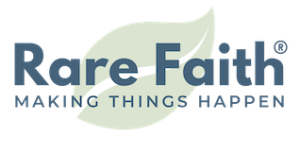








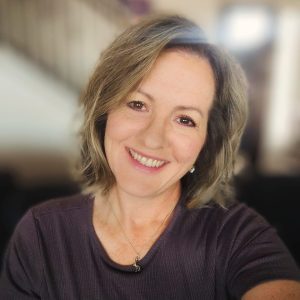
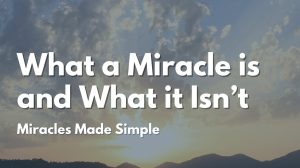
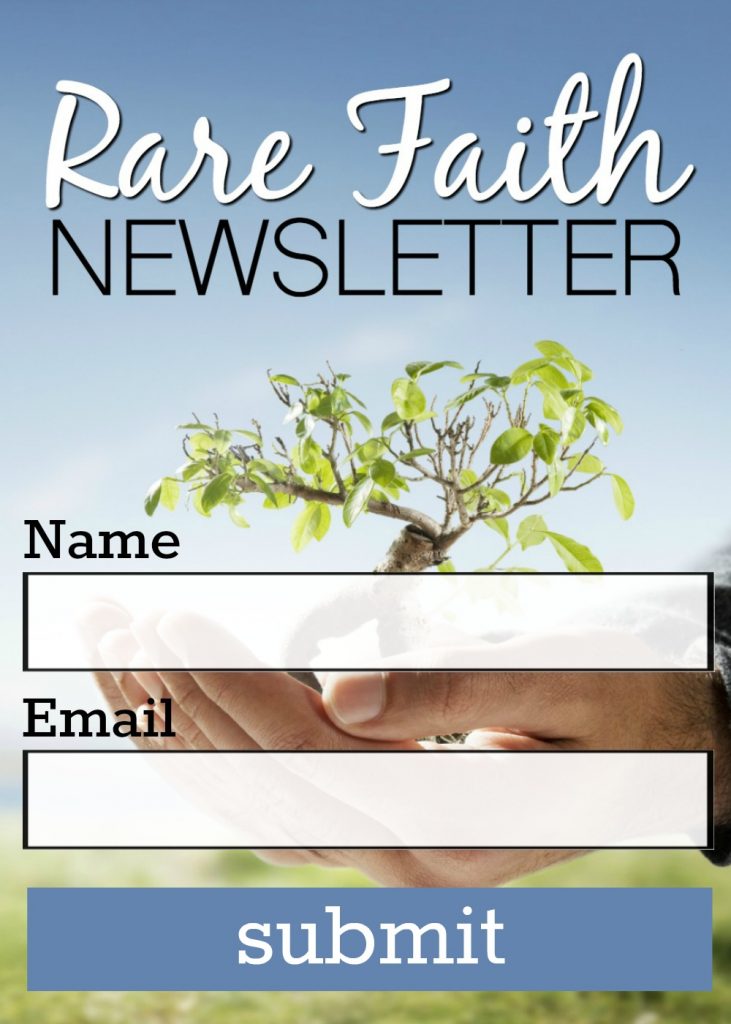


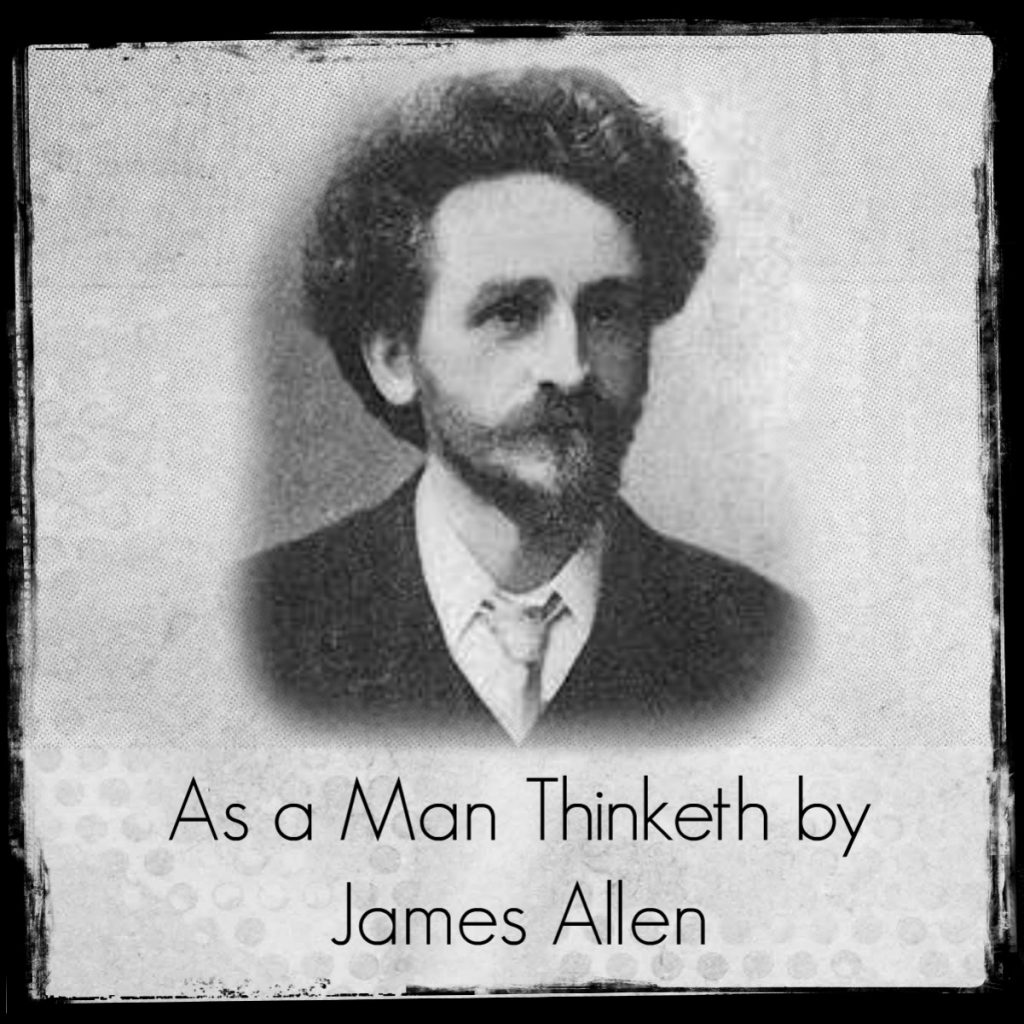


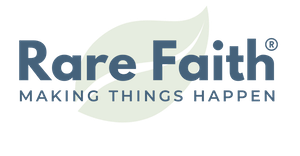
Recent Comments